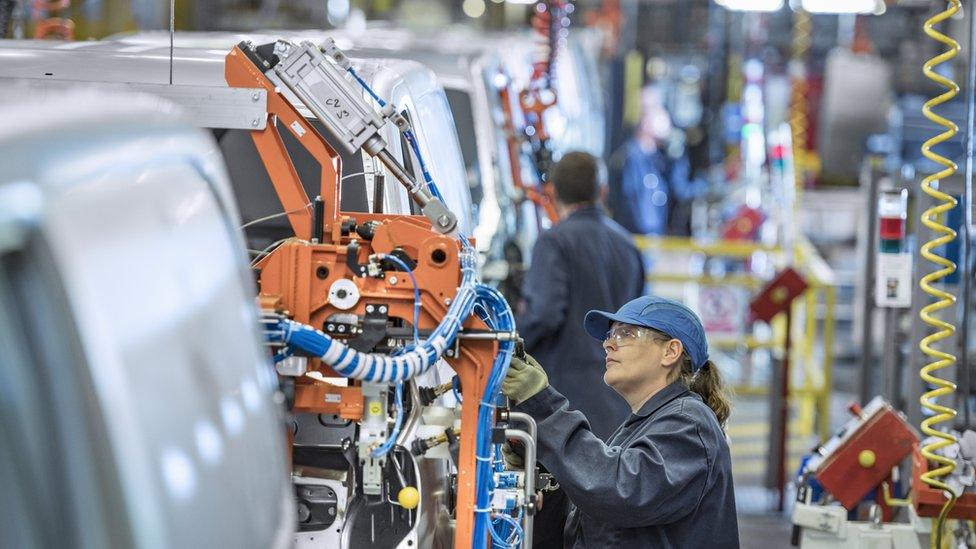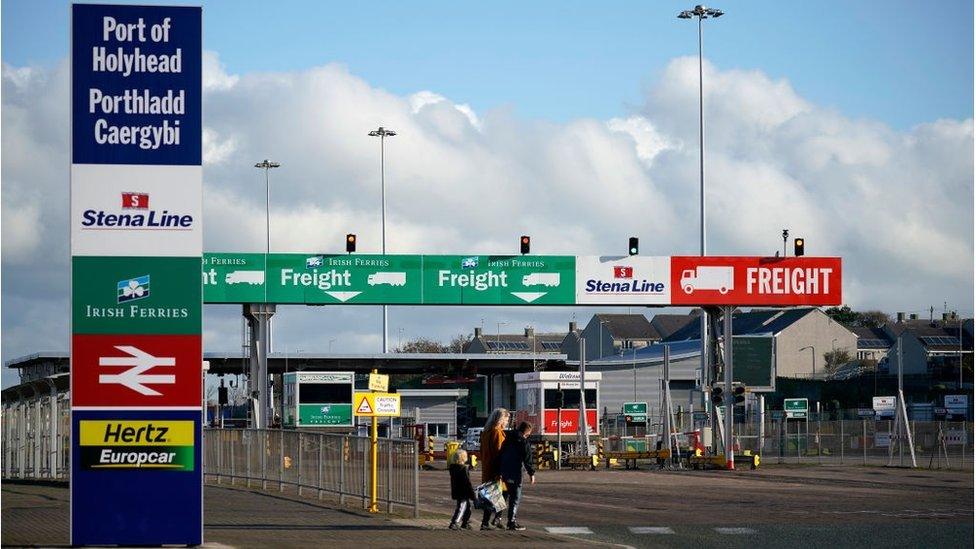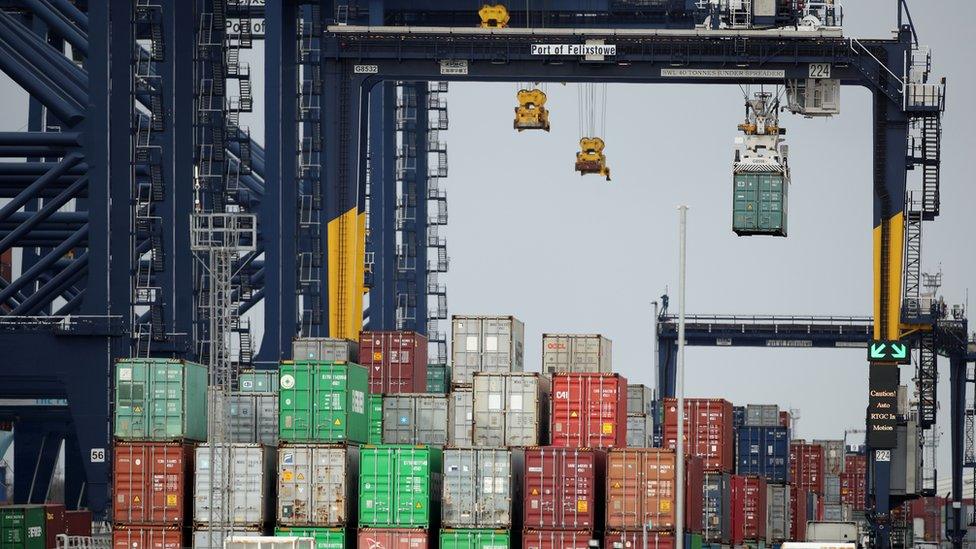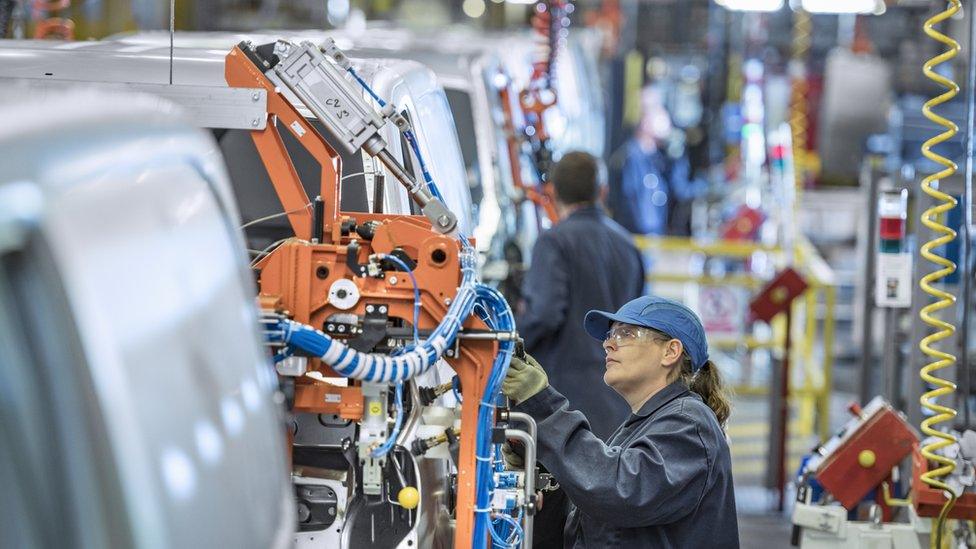Brexit: Trade changes 'challenging' for Welsh car industry
- Published
- comments
Nicholas Brainsby says he believes there is more opportunity but it is "early days"
Wales' automotive industry faces more challenges over future Brexit trade changes, according to experts.
The Welsh Automotive Forum (WAF) said new checks on imports and new rules over where car parts can come from could add to customs disruption when they are introduced.
There will be checks at the UK border on goods coming from the European Union from 1 January 2022.
The UK government said new trade deals were creating prosperity.
Up to 16,000 people are employed in the automotive industry in Wales, but the sector has faced a challenging period with demand for cars falling, teamed with Brexit uncertainties and the coronavirus pandemic.
Since 1 January 2021, drivers have had to provide specific paperwork to take goods between the EU and the UK, with some businesses claiming they had lost thousands due to disruption at ports caused by the new rules and Covid-19.
The WAF said several companies had already been fined for missing deadlines after "teething problems" around the post-Brexit customs processes, and the system had not yet faced the levels of trade usually expected, due to the pandemic.
It said the paperwork changes risked the "just in time" model for manufacturing - which relies on parts being delivered as they are needed to reduce storage, delays and waste.
The WAF said it feared further disruption when changes were introduced from 1 January 2022 for imports from the EU.
"We're seeing a lot of the disruption at the moment is more on the export traffic from the UK to the European Union, which has obviously been subject to the new regulations, since the first of January," said WAF chief executive Robert O'Neil.
"I think it's a case of we have to keep a very close eye on how the situation will morph and develop once imports face the new border checks in 2022."
Businesses have also been preparing for added checks on goods coming to the UK which were due to be introduced on 1 July.
The UK government decided last week to delay these until January 2022, partly due to business concerns.

About 16,000 people work in the car industry in Wales
Mr O'Neill said stricter rules over where car parts come from, due to be introduced in the coming years, could lead to further challenges for Welsh manufacturers.
Dr Jane Lynch from Cardiff University, an expert in supply chain management, said issues caused by Brexit and Covid were particularly "acute" for the car industry as it moves from producing diesel cars to electric vehicles.
"Let's see it as an opportunity rather than a threat in that businesses could innovate now," she said.
"There's never been a better time really for businesses to start creating a niche for themselves… and that might mean collaborating with other businesses, so don't be afraid of doing that."
Car industry expert Prof David Bailey of Birmingham University said hopes Brexit would lead to more car components being UK-made would not "happen automatically".
"There was an argument that with Brexit, maybe we will see more reshoring of components to the UK, and that firms producing in the UK will source more locally," he said.
"Now that may be a possibility but we need a much more supportive government policy to make that happen."
He added that some automotive companies based in the UK have moved production to the EU rather than produce more here.

A contraflow was introduced on the A55 near the port of Holyhead from the end of the transition period
Nicholas Brainsby from Wrexham-based Applied Component Technology, which makes trims and loadfloors for cars, said he believed there was more opportunity but it was "early days".
"What we can do is ensure that we are competitive compared with other manufacturers of similar products in Europe and beyond," he said.
The UK government said it was committed to ensuring the UK continued to be "one of the best locations in the world" for automotive manufacturing.
A spokesman added: "Our new trade deals and work on exports are creating prosperity and new opportunities for businesses and citizens across the UK, including for the Welsh automotive industry."
- Published11 March 2021

- Published7 December 2020
